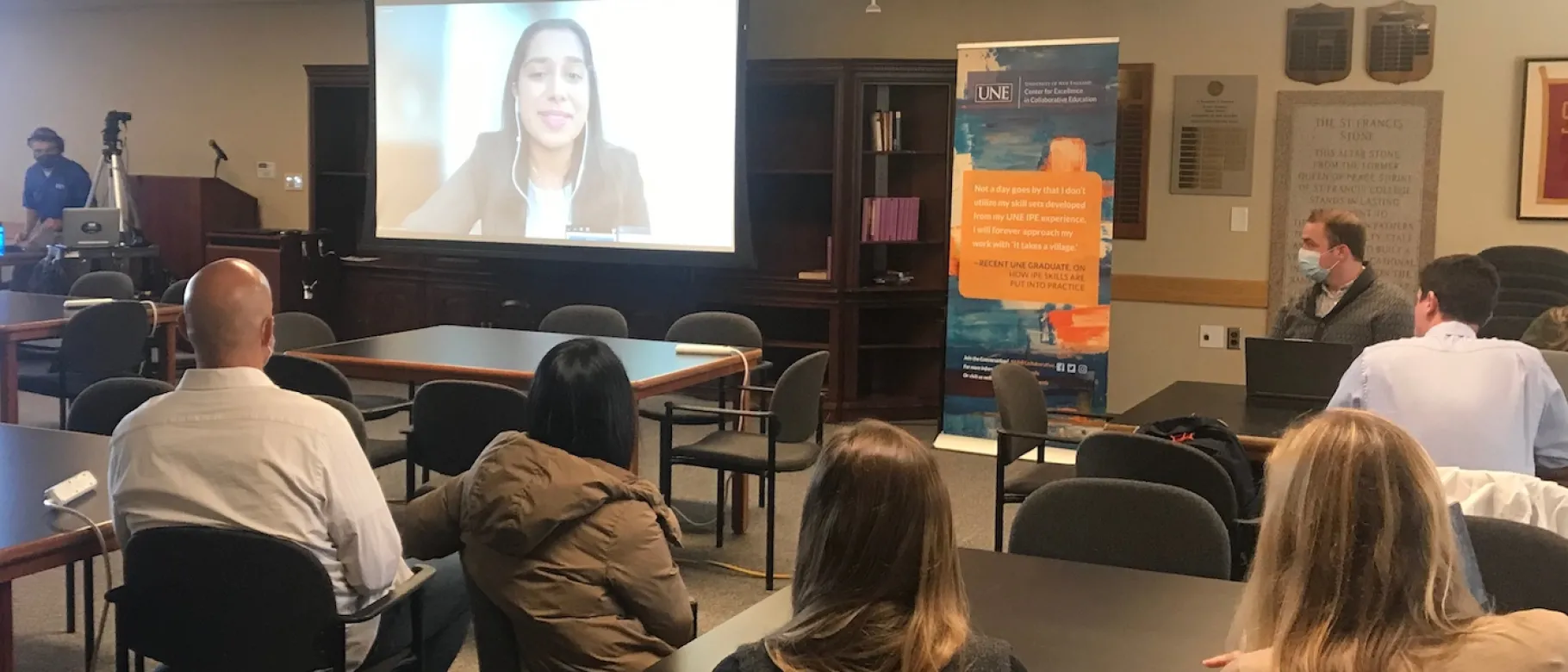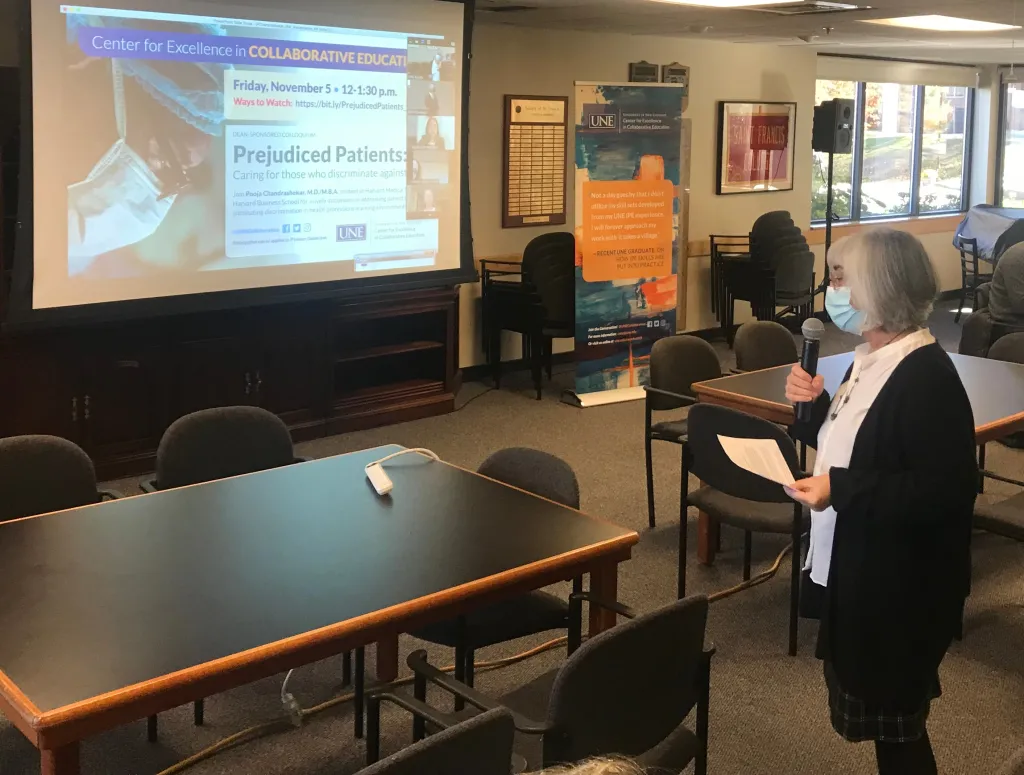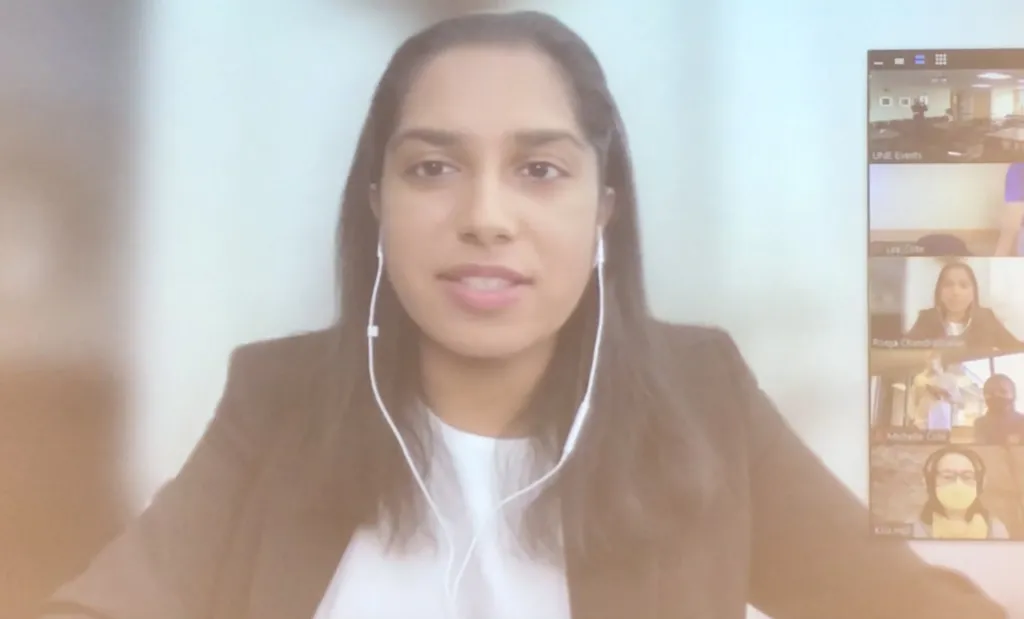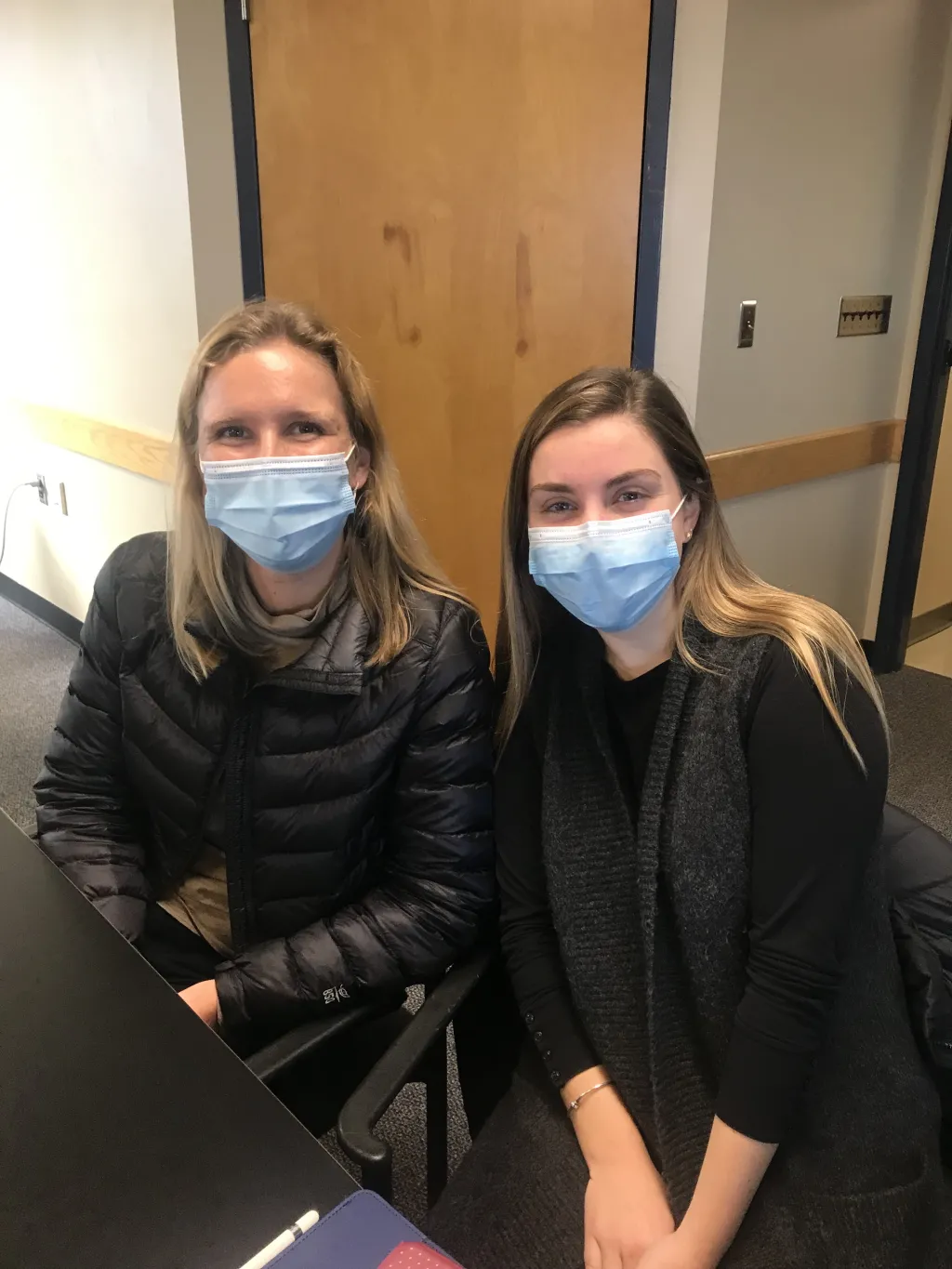First annual Dean’s Colloquium explores issue of patients who discriminate against health care providers

On Nov. 5, the Center for Excellence in Collaborative Education (CECE) presented the first annual Dean’s Colloquium, “Prejudiced Patients: Caring for those who discriminate against you.” The Dean’s Colloquium is designed to bring speakers to UNE to present on pressing issues of the day.
The event featured a presentation by Pooja Chandrashekar, a medical student and Master of Business Administration student at Harvard Medical School and Harvard Business School, and included a lively discussion among UNE medical students on addressing patient bias and eliminating discrimination in health professions learning environments.
Chandrashekar is the child of immigrants from India. Her work focuses on improving health care delivery for underserved populations. She has published more than a dozen papers in peer-reviewed journals.
“The topic of prejudiced patients is one that has long gone unaddressed and is often swept under the rug at health care organizations and academic medical centers,” Chandrashekar told those gathered in person and online. “So, it is really wonderful for me to see the University of New England shed light on this important topic. Our objectives today are to understand how patient bias and discrimination manifest in the clinical setting, the ethical dilemma that these topics present, and the impact it has on clinicians, especially those from minority backgrounds. Also, to give you a framework for how you might react to these issues when confronted with them.”
Chandrashekar shared her first-hand experiences on the topic, including the time she was asked to interview a patient who went into a tirade laced with racist taunts about how much he hated Korean and Vietnamese people. She also relayed an experience that happened to her mentor, who is a resident at Brigham and Women’s Hospital in Boston. An angry patient commented that ‘you people are so incompetent’ referring to the doctor’s Indian-American ethnicity.
“We are all very well aware of how prevalent racism and discrimination is in general in society,” Chandrashekar said.
“But often we do not think about how these issues occur in the clinical setting and the impact it has on us until you are actually confronted with them.”
Students were then asked to gather in smaller groups to discuss the scenarios and decide how they would handle similar situations.
“There are a lot of people who are coming from different walks of life, and most people will not be thinking in the same way that we are,” commented Patrick Allen, (D.O., ’25). “They might come with their own personal baggage, and it is our job as physicians to kind of meet them where they are at and provide them with high quality care, regardless of how they feel.”
Students said it was important to try to ground these patients and provide them with realistic options, including having them continue with the care they are giving or send the patient to another provider.
Other tips given to students included determining the reason behind the patient’s bias, assessing their own safety and well-being in the situation, and informing their supervisors of the incident.
“It is helpful hearing the first-hand experience about people who have gone through this and to learn how they responded,” stated Bridget Kelly (D.O., ’25). “If a situation comes up like this for us, we want to know what to expect and how to help those around us as well.”
Chandrashekar said this is a difficult topic because of what we have been conditioned to believe.
“We live by this idea that patient preferences should guide all clinical interactions and decisions,” she said. “With that in mind, there is this implicit expectation that clinicians should care for patients, no matter what their behavior is. Clinicians also have the right to a workplace free of mistreatment and abuse, and that is the ethical dilemma here.”
Chandrashekar told the gathering that the event was all about everyone learning more about the topic together.
“So, hopefully you can come away with some very actionable frameworks,” she stated.
The event was one of several collaborative events sponsored by CECE this semester. For more information visit: https://www.une.edu/cece


